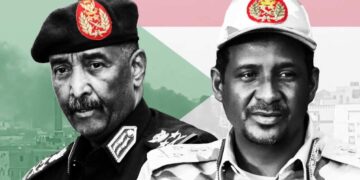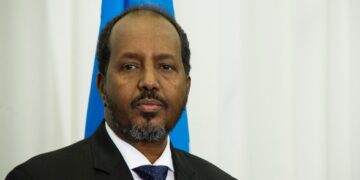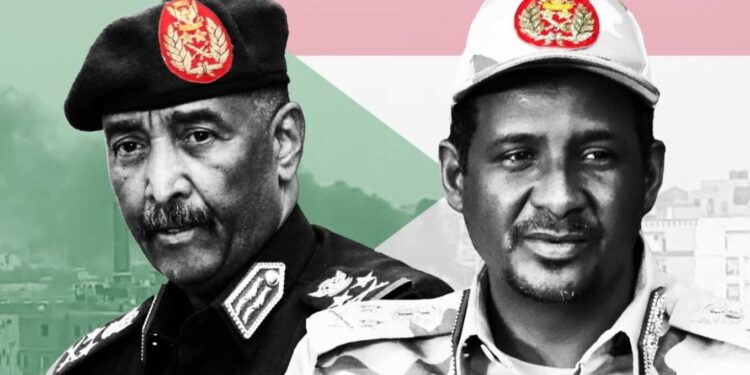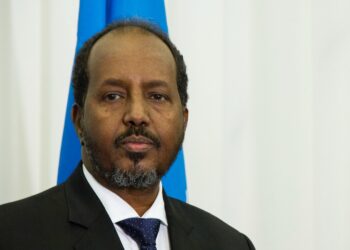By John Ikani
Peace efforts in Sudan suffered a setback on Wednesday as the military government refused to resume talks with the rival paramilitary force, the Rapid Support Forces (RSF).
This decision comes despite pleas from the US and a worsening humanitarian crisis.
The conflict, which erupted in April 2024 over a path towards free elections, has claimed thousands of lives and displaced over 9 million people.
Intense fighting continues in Khartoum’s northern districts, with residents reporting heavy aerial bombardments and artillery fire.
General Abdel Fattah al-Burhan, Sudan’s leader, dismissed calls for renewed talks in Jeddah, Saudi Arabia. Malik Agar, Burhan’s deputy and a former rebel leader, stated their refusal bluntly: “We won’t go. Let those who demand it kill us here and take our bodies to Jeddah.”
The US, along with Saudi Arabia, has previously sponsored peace talks in Jeddah, but these efforts stalled due to a lack of ceasefire commitment from both sides.
Adding another layer of complexity, Sudan’s military-backed foreign ministry accepted an invitation from Egypt for a summit involving civilian political groups.
However, they attached conditions regarding the types of groups and foreign actors allowed to participate.
Agar further dismissed a separate summit for civilian parties in Addis Ababa, calling it a distraction from the war’s immediate resolution.
The RSF, while expressing openness to talks earlier, has yet to demonstrate a commitment to peace. Both sides have repeatedly broken ceasefire agreements.
The situation in North Darfur’s capital, al-Fashir, is particularly dire.
Fighting escalated dramatically on May 10th, killing at least 145 people and displacing over 3,600 families. UN and aid group reports indicate a surge in displacement this week alone.
The RSF has encircled al-Fashir and raided civilian areas. The Sudanese army, desperately clinging to its last stronghold in Darfur, has responded with costly air strikes.
Civilians are caught in the crossfire, with homes destroyed by projectiles and vital services like water and electricity disrupted. Many are unable to reach hospitals for treatment.
The international community, including the US, faces a critical challenge in pressuring both sides towards a ceasefire and genuine peace talks.
The ongoing conflict continues to inflict immense suffering on the Sudanese people.




































